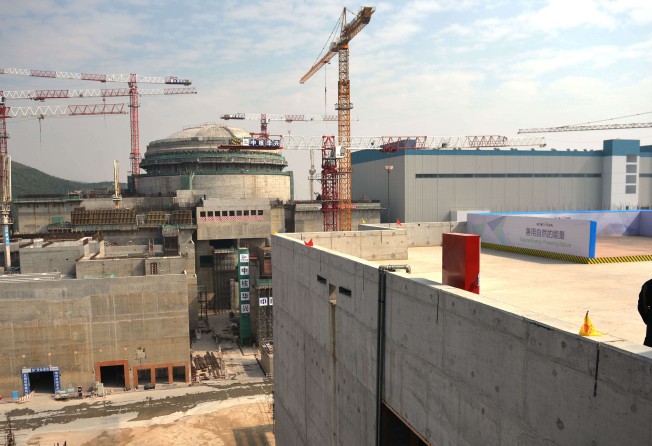Taishan nuclear project draws a further 2.9b yuan capital injection from state-owned CGN Power
Additional funding could point to further delays and cost escalation at the controversial nuclear power plant being built 130 kilometres from Hong Kong

CGN Power, the listed unit of state-owned China General Nuclear Power, China’s largest nuclear power projects developer, has announced a 17 per cent capital increase at its Taishan nuclear project, raising concern cost overruns and commissioning delays will continue.
The company will inject 2.94 billion yuan into its 51 per cent-held unit Taishan Nuclear Power Joint Venture, which will see the unit’s total registered capital to 28.6 billion yuan from 24.4 billion yuan, the company said in a filing to Hong Kong’s bourse late on Tuesday.
Provincial government-controlled Guangdong Yudean, the province’s largest power producer, owns 19 per cent stake, and CGN’s French technology partner EDF holds 30 per cent stake.
CGN said the capital injection serves “to enhance its financing ability so as to meet its fund requirements for engineering construction.”
The project, which CGN said on track to become the world’s first third-generation nuclear reactor built on the European pressurised reactors (EPR) design to achieve commercial operation, was originally expected to have its first generating unit come online in December 2013 followed by the second in October 2014.
The timetable of the two units subsequently slipped to the first and second half of this year, and further to the first and second half of next year after “comprehensive evaluation on subsequent engineering construction plan and relevant risks,” said CGN a year ago.
Performance testing for the first-of-its-kind reactor is time consuming, and similar units overseas have also seen delays, it said at the time.
The Flamanville EPR project in France is now six years behind target, while that in Olkiluoto EPR project in Finland is eight years behind.
Dennis Ip, head of utilities and renewables research at Daiwa Capital Markets, said in a report the capital injection “reflects continued cost overruns” and that the Taishan nuclear plant’s completion will likely miss the targets announced earlier.
He noted the bulk of the infusion will be made by April 30, not far ahead of the project’s targeted commissioning time, which raises concern it may see further delays.
Ip projected the plant’s investment cost to rise to between 22 and 23 yuan per watt from his previous forecast of 21 yuan, and compares to 14 yuan as budgeted by the company. Each unit has 1.75 billion watt of capacity.
Each 5 per cent increase in the budget could result in a 0.7 percentage point decline in the project’s return rate on a non debt-leveraged basis, due to higher investment costs and delays in operating cash flows, he said.
“We expect technical issues to remain the biggest challenges for the [third-generation] units, which could lead to further delays in the commissioning of the projects as well as cost overruns,” he wrote.
A CGN spokesman told the Post the capital increase is a “normal business arrangement,” adding it has not changed the completion time-table for the project.
Ip expects CGN net debt-to-shareholders’ equity ratio to rise to 220 per cent next year from 207 per cent after the capital injection.
The injection comes as the company is in the process of selling a 17 per cent stake in another nuclear project in Yangjiang, Guangdong for around 5 billion yuan, which would help bolster its cash position.
CGN shares closed Wednesday unchanged at HK$2.26.